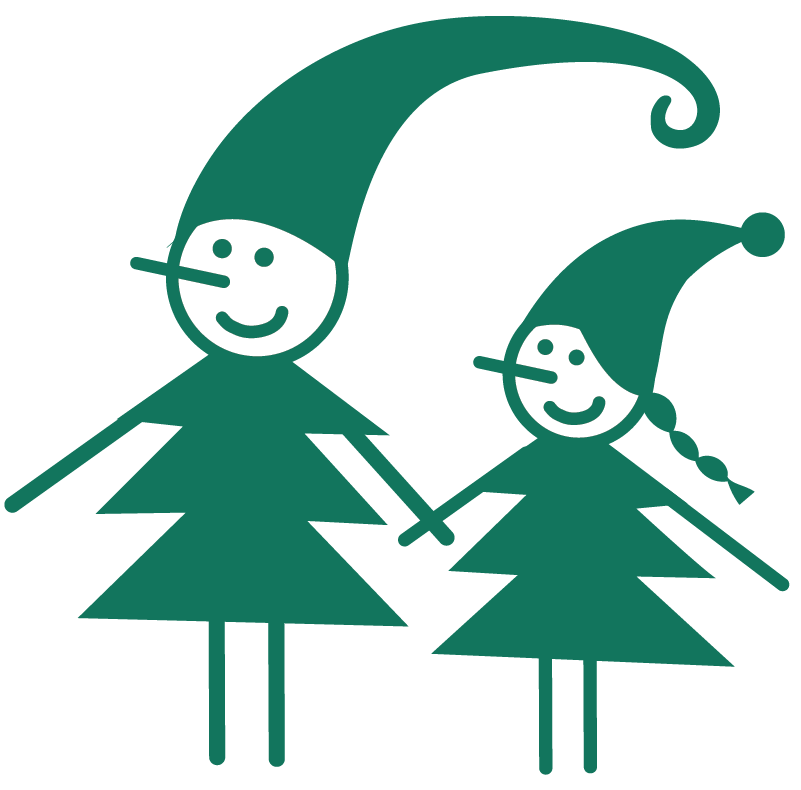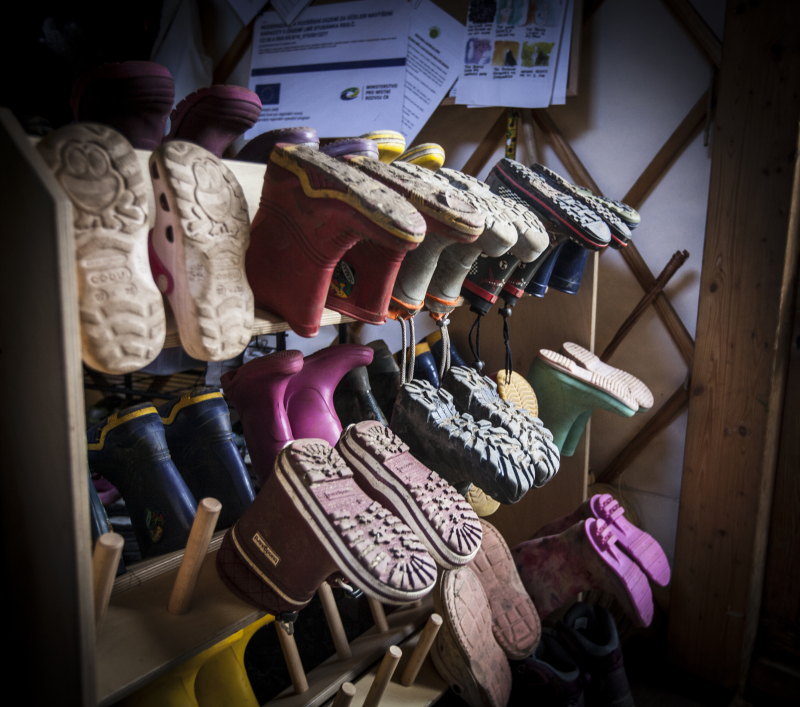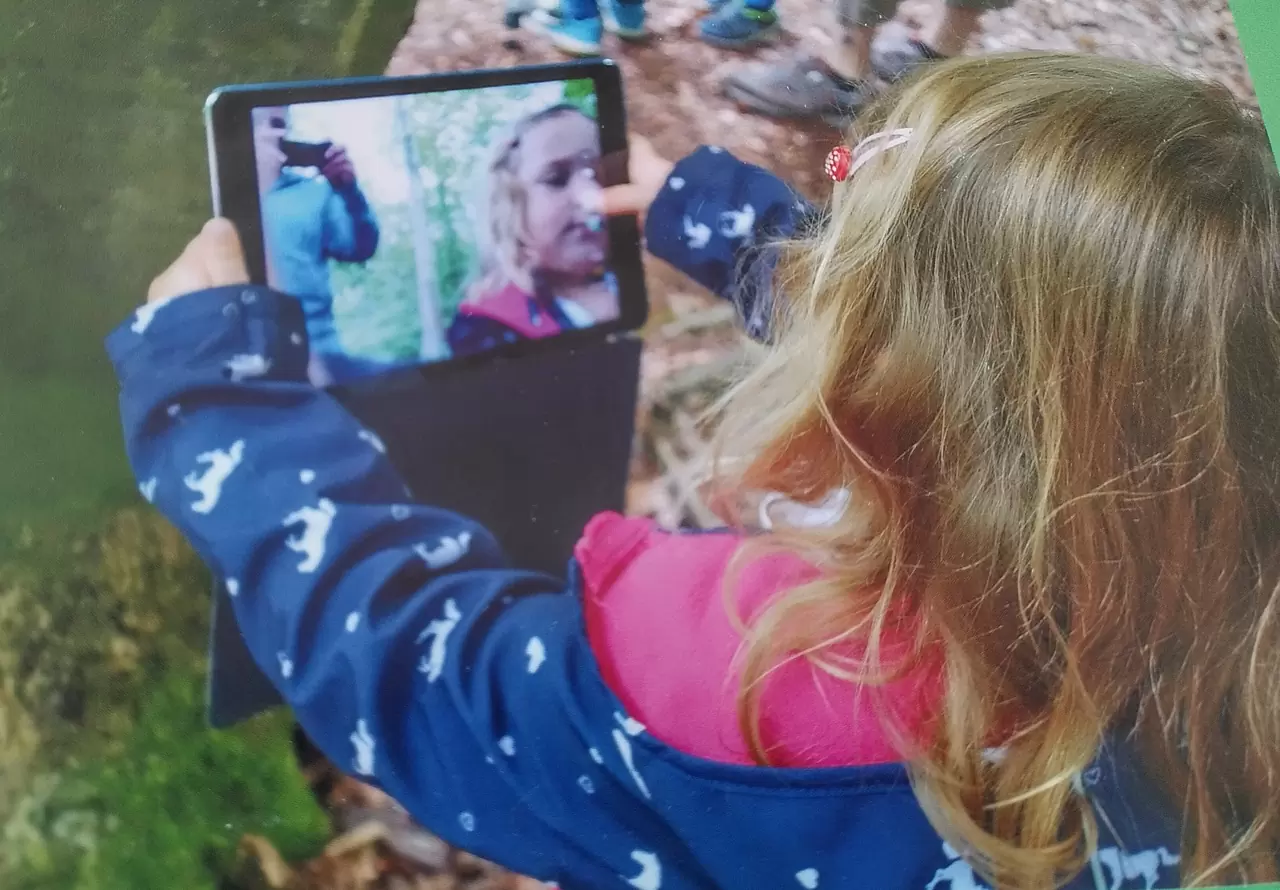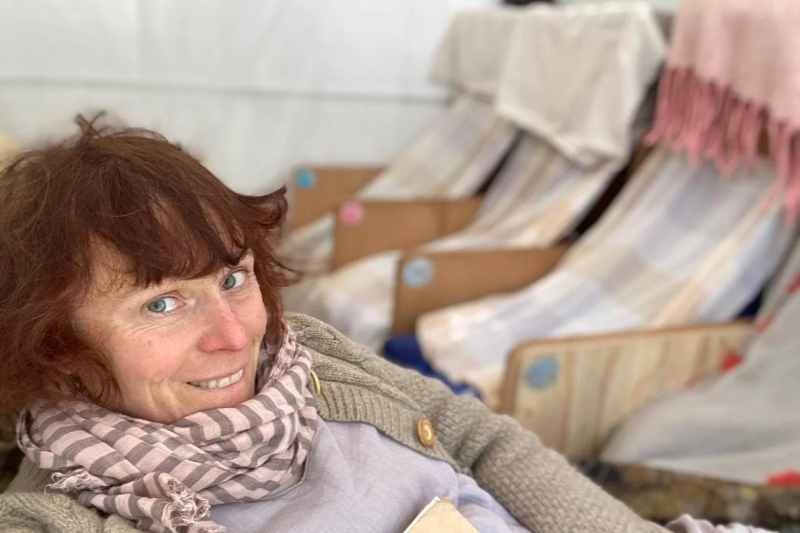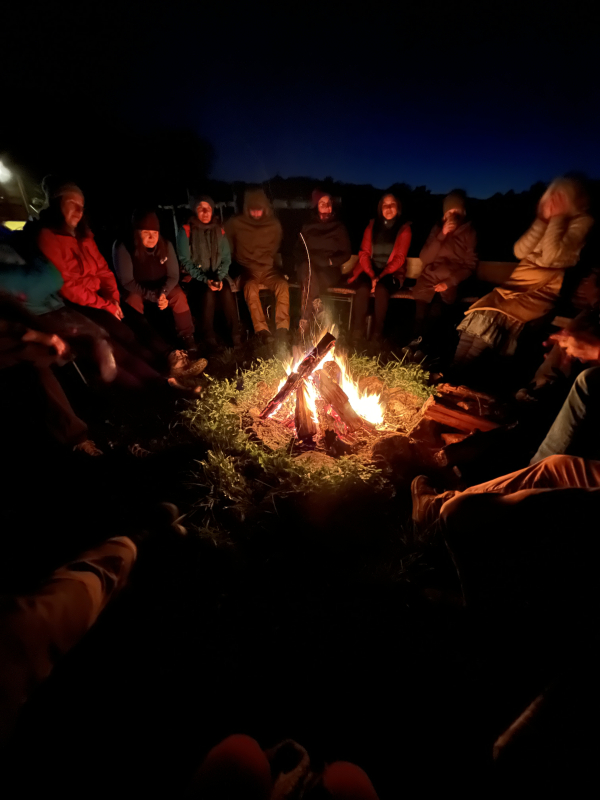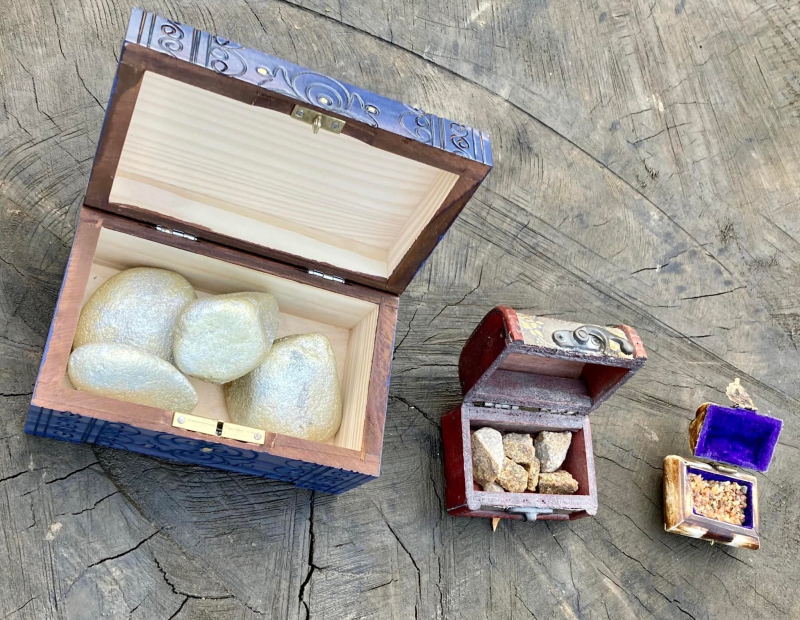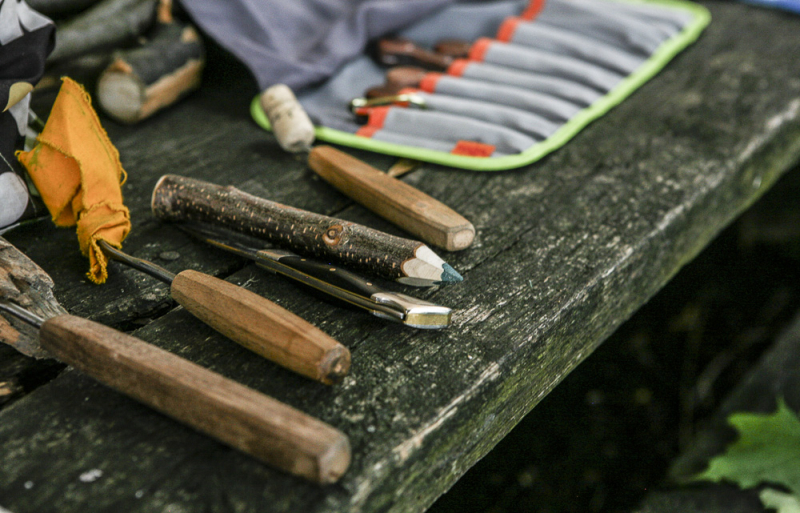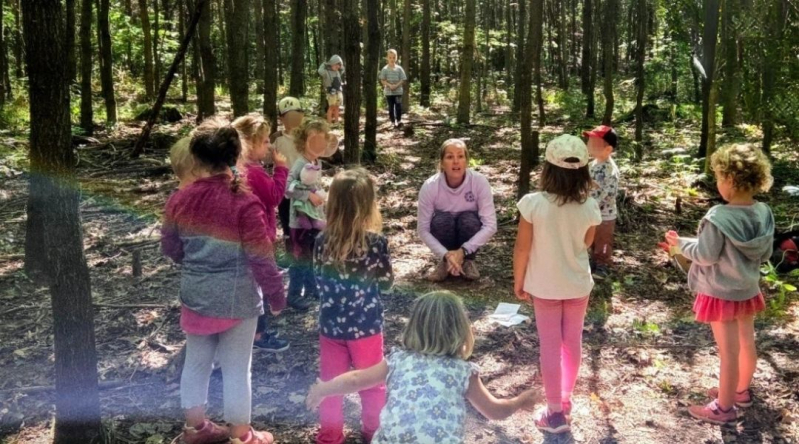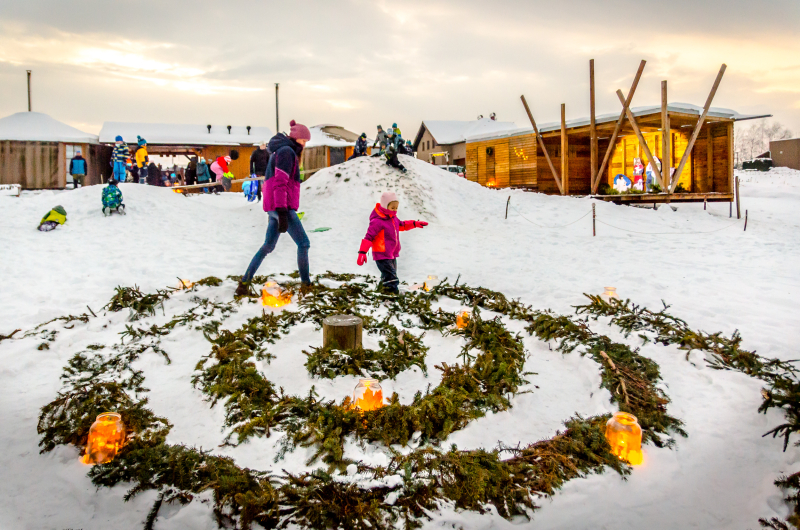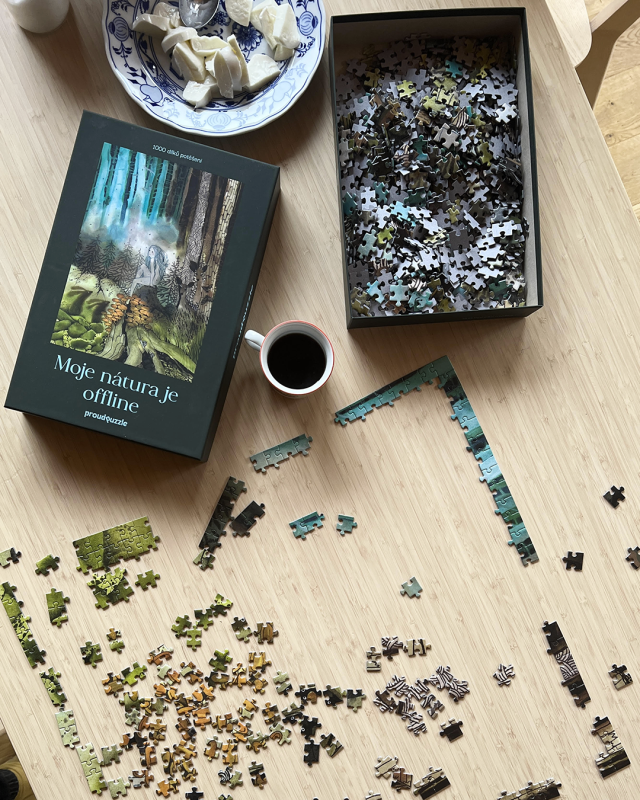PODPOŘÍME VÁS, ABYSTE MOHLI VÍCE ČASU TRÁVIT VENKU
Proč věříme, že příroda je tím nejlepším vzdělávacím prostředím pro děti? V přírodě děti zažívají učení všemi smysly. Skrze pozorování, dotýkání, vůně, zvuky i pohyb získávají zkušenosti, které jim pomáhají chápat svět kolem sebe. Příroda se také neustále proměňuje – roční období, počasí, zvířata a rostliny dětem poskytují nekonečný zdroj inspirace a podnětů k objevování. Děti se venku také učí sociálním dovednostem, spolupráci a životu ve společenství. Přirozený pohyb, ale i přirozený odpočinek pomáhá rozvíjet odolnost u dětí a učí je vnímat své tělo.
Ranní rosa a pára u pusy. Vítr ve vláskách a červené tváře. Svačina v mechu a jehličí, první ořezaný klacík a pomoc kamarádovi nasadit rukavici. Tohle všechno a ještě mnohem více zažijete s dětmi jen venku.
Zde najdete odpovědi na nejčastěji kladené otázky pedagogů.
CO U NÁS NAJDETE
Vítejte na stránce pro pedagogy.
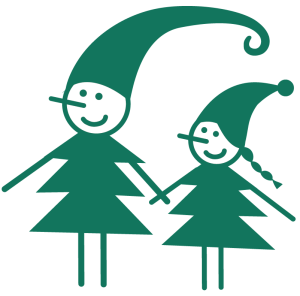
Komunitu
Staňte se členy ALMŠ a propojte se s kolegy z celé republiky. Budete moci čerpat ze zkušeností jiných a sami přispět těmi svými.
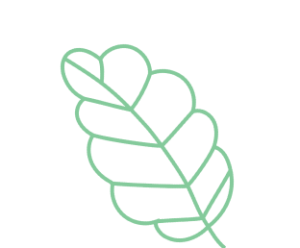
Podporu
A to neříkáme jen tak do větru. Supervize vás může ochránit před vyhořením. Přidejte se!

Školu lesem
Vyberte si z široké a rozmanité nabídky vzdělávání pro tento školní rok. Naši členové získávají automaticky SLEVY.
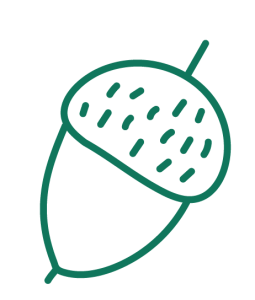
Konzultace na míru
Potřebujete individuální podporu při začleňování přírodních pedagogiky do vaší výuky? Domluvte si konzultaci.

Záznamy webinářů
Chcete se podívat na webinář, který vás zajímá v čase, který vám vyhovuje? Řešení je jednoduché. Záznamy? Máme!
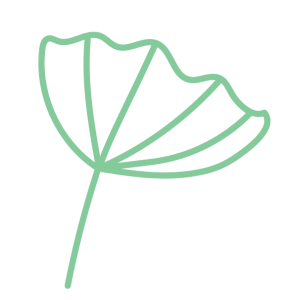
Výbavu do začátku
Kurzy přírodní pedagogiky pro začínající vás vybaví potřebnými dovednostmi pro to, abyste mohli učit v přírodě.
Kalendář vzdělávacích akcí
Doba trvání: 9:00 - 13:00
Stavějte svou lesní školku na skutečně pevných základech. Dvoudílný webinář s ředitelkou ALMŠ Pavlou Štindlovou plný praktických rad a tipů.
Místo: BRNO - Pozořice (LMŠ Stromík)
Kraj: Jihomoravský kraj
Začínající průvodce je vstupní brána do světa přírodní pedagogiky – vzdělání, které jinde nenajdete. Tato akce vám poskytne pevné základy pro bezpečný a sebevědomý pohyb s dětmi v přírodě, stejně jako inspiraci a jistotu při tvorbě programu a vedení venkovních aktivit. Pro všechny, kteří se chtějí stát průvodcem, který učí srdcem, nohama v mechu a očima otevřenýma světu.
Doba trvání: 9:00 - 13:00
Místo: online
Od září 2026 je pro školky povinné, aby pracovali podle nového RVP PV (Rámcového vzdělávacího plánu předškolního vzdělávání). Jedná se o dokument, který může vyvolávat pocity hrůzy či nesmyslnosti. Ve skutečnosti je však pouze potřeba prohlédnout jeho složitě znějící jazyk a naučit se s ním pracovat podle svých potřeb.
Doba trvání: 09:00 - 18:00
Místo: Praha - Dolní Černošice Lipence (MŠ Jeden strom)
Kraj: Hlavní město Praha
Svátky a tradice mají místo v životě každého člověka, v každém lidském společenství. Jsou součástí kultury. Vždy nabízely lidem útěchu a občerstvení v běhu všedních dní, ohraničovaly dny odpočinku a obnovy. Není pochyb o tom, že mohou být zdrojem síly i dnes. V moderní době však není jasné, jak se v nich vyznat. Objevte nevšední cyklus seminářů s Johanou Passerin.
Kurz je určen průvodcům a pedagogům, kteří chtějí tvořit slavnosti smysluplně – v souladu s rytmem přírody, srdcem a s důrazem na komunitu. Čeká vás skutečný relax a atmosféra plná fantazie, tvořivosti a inspirace.
Doba trvání: 9:00 - 13:00
Od září 2026 je pro školky povinné, aby pracovali podle nového RVP PV (Rámcového vzdělávacího plánu předškolního vzdělávání). Jedná se o dokument, který může vyvolávat pocity hrůzy či nesmyslnosti. Ve skutečnosti je však pouze potřeba prohlédnout jeho složitě znějící jazyk a naučit se s ním pracovat podle svých potřeb.
Doba trvání: 15:00 - 18:00
Místo: online
Pravidelná členská schůze ALMŠ, tentokrát online...
Místo: BRNO - Pozořice (LMŠ Stromík)
Kraj: Jihomoravský kraj
Začínající průvodce je vstupní brána do světa přírodní pedagogiky – vzdělání, které jinde nenajdete. Tato akce vám poskytne pevné základy pro bezpečný a sebevědomý pohyb s dětmi v přírodě, stejně jako inspiraci a jistotu při tvorbě programu a vedení venkovních aktivit. Pro všechny, kteří se chtějí stát průvodcem, který učí srdcem, nohama v mechu a očima otevřenýma světu.
Doba trvání: 17:00 - 19:30
Vstupte do bezpečného prostoru určeného pro sdílení vašich případových studií a kazuistik. Vy přinášíte témata, zkušený supervizor vás provází cestou k novým úhlům pohledu, inspiraci i řešením. Prostor pro růst, reflexi a vzájemnou podporu – odkudkoli online.
Doba trvání: 9:00 - 12:00
Rozpočet prakticky je praktický workshop, který vám pomůže získat přehled v číslech. Naučíte se jednoduše propojit rozpočet s peněžními toky do jednoho přehledného systému, díky kterému získáte kontrolu nad financemi své školky. Čeká vás srozumitelný průvodce světem rozpočtování a jako bonus si odnesete hotovou tabulku pro rozpočet a cashflow, kterou můžete rovnou použít.
Místo: Ekocentrum Loutí
Kraj: Středočeský kraj
Unikátní vzdělávací a sebezkušenostní program inspirovaný metodikou Kojotího učení. Účastníci se učí vnímat přírodní procesy i osobní proměny, které přináší kontakt s přírodou a role průvodce dětí. Čekají vás třikrát čtyři dny v přírodě pod vedením skvělého stopaře Grega Sommera, který umí v přírodě číst jako v knize.
Program spočívá v probouzení vnitřní motivace, hravosti, prožitku, umění ptát se a odpovídat úplně jinak než, jak jsme zažili ve školách. Vytváří prostor pro spojení se sebou a s přírodou. Vede k citelně hlubšímu porozumění přírodě a jejím zákonitostem.
Tento kurz je už druhým uskutečněným během Lišáckého učení v Česku.
Místo: BRNO - Pozořice (LMŠ Stromík)
Kraj: Jihomoravský kraj
Začínající průvodce je vstupní brána do světa přírodní pedagogiky – vzdělání, které jinde nenajdete. Tato akce vám poskytne pevné základy pro bezpečný a sebevědomý pohyb s dětmi v přírodě, stejně jako inspiraci a jistotu při tvorbě programu a vedení venkovních aktivit. Pro všechny, kteří se chtějí stát průvodcem, který učí srdcem, nohama v mechu a očima otevřenýma světu.
Doba trvání: 13:30 - 15:00
Místo: online
Záměr založit Platformu vychází ze zkušeností z advokační práce ALMŠ. Vedoucí organizací (lídři) se setkávají v různých uskupeních, aby posouvali hranice svého oboru - společně. Řada z vás se takových setkávání účastní, což zaznělo i na Platformě. Asociace lesních MŠ si přeje vytvořit půdu pro to, aby byl dopad vaší každodenní práce více vidět a slyšet.
Účast na těchto setkáních je otevřena všem zástupcům členských lesních školek, kteří se chtějí aktivně podílet na rozvoji vzdělávání v přírodě. Přidejte se i vy!
Jste tady správně, ale tuto vzdělávací akci ještě trochu ladíme. Zatím tu nenajdete tlačítko na přihlášení. Přihlásit se budete moci v nejbližších dnech, tak se zastavte a přihlaste se.
Buďme v kontaktu
Zajímáte se o vzdělávání v přírodě, učíte, nebo máte dítě v lesní školce? Přihlaste se k odběru našeho newsletteru a získejte les plný inspirace.
• Aktuální a důležité informace ze světa lesních školek
• Pozvánky na zajímavé akce
• Inspirativní články, a sezónní tipy
• Členové najdou v newsletteru také grantový kalendář, novinky z legislativy a další.
Zástupci členských organizací dostávají newsletter a další zprávy automaticky.
Některé zprávy v newsletteru směrují do členské sekce webu. Vstup do ní je umožněn pouze členům ALMŠ.
Z odběru newsletteru je možné se kdykoliv odhlásit.
Lesní zprávy přichází do vaší schránky každý měsíc.
Přečtěte si naše zásady ochrany osobních údajů (GDPR)
Co se chystá
mapa lesních školek
Najděte nejbližší lesní školku ve vašem okolí. Zjistěte, kde sídlí vaši kolegové, nebo si vyhledejde místo, kam se můžete vydat na hospitaci.
Nejčastěji kladené otázky
Kvalifikace učitel pro MŠ je daná zákonem o pedagogických pracovnících 563/2004 Sb. v § 3 a § 6.:
- VŠ obor pedagogika pro MŠ,
- VŠ pedagogika pro 1.stupeň ZŠ doplněná o tzv. pedagogické minimum pro učitele MŠ,
- VŠ Pedagogické vědy pro 1. stupeň ZŠ doplněné o tzv. pedagogické minimum pro učitele MŠ,
- VŠ vychovatelství doplněné o tzv. pedagogické minimum pro učitele MŠ,
- VŠ pedagogika volného času doplněné o tzv. pedagogické minimum pro učitele MŠ,
- VOŠ učitel pro MŠ,
- VOŠ vychovatel doplněná o pedagogické minimum na VŠ,
- SŠ učitel v MŠ,
- SŠ vychovatel doplněná o část maturity zaměřenou na pedagogiku předškolního věku,
- VŠ speciální pedagogika,
- VOŠ speciální pedagogika.
Máte-li pochybnost, zda Vaše kvalifikace odpovídá výše uvedenému výčtu, nejděte svůj diplom s kódem Vašeho studijního oboru a kontaktujte zaměstnance MŠMT zabývajícího se kvalifikacemi pedagogických pracovníků.
Zajímají-li Vás rámcové možnosti studia, které splňuje požadavky výše, využijte přehled studijních příležitostí (dokument je již staršího data, ale jistě Vám pomůže v orientaci ve studijních možnostech).
Průvodce - nepedagog může mít následující kvalifikace, které jsou uvedeny ve vyhlášce 14/2005 v § 5 odst. (6).:
- pedagogické vzdělání jako učitel mateřské školy (popsáno výše),
- vychovatel,
- zdravotnicky zaměřené vzdělání jako všeobecná sestra,
- zdravotnicky zaměřené vzdělání jako dětská sestra,
- zdravotnicky zaměřené vzdělání jako zdravotnický asistent,
- zdravotnicky zaměřené vzdělání jako porodní asistent,
- zdravotnicky zaměřené vzdělání jako zdravotnický záchranář,
- kvalifikaci chůvy pro děti do zahájení povinné předškolní docházky.
Pozor, existuje více kvalifikací s obdobným názvem i náplní. Pro práci v lesní MŠ je však uznávána jen kvalifikace chůva pro děti do zahájení povinné školní docházky (kód: 69-017-M).
Pokud je LMŠ soukromá, zřizovaná například spolkem, nebo ústavem, musí mít ředitel/ka vzdělání postačující pro učitele v MŠ (tedy ten, kdo u Vás může nastoupit na pozici „pedagog“, má i odpovídající vzdělání na pozici „ředitel“) a 3 roky praxe „spočívající ve výkonu přímé pedagogické činnosti nebo v činnosti, pro kterou jsou potřebné znalosti stejného nebo obdobného zaměření, nebo v řídící činnosti nebo v činnosti ve výzkumu“. Pokud by šlo o školku obecní či státní, musí mít ještě další vzdělání, tzv. školský management. Kvalifikaci ředitele definuje zákon o pedagogických pracovnících 563/2004 Sb. v § 3 a § 5.
Ve školce je většinou 16 dětí ve skupině za doprovodu 2 dospělých osob (často nazývaných „průvodci”). V LMŠ je navíc určena konkrétní kvalifikace, kterou musí oba splňovat. Děti v lesní školce tráví většinu dne venku, do zázemí si chodí zpravidla jen odpočinout v době po obědě, případně v zázemí obědvají, pokud venkovní podmínky nedovolují jíst venku. Vybavení dětí následuje rčení: "Není špatné počasí, pouze špatné oblečení.". Nosí několik vrstev z materiálů vhodných pro dané roční období a v zázemí mají uloženo náhradní oblečení. Pokud jsou děti správně oblečené, zima jim není, což dokládají zkušenosti našich kolegů z Irska (tam prší skoro pořád), či ze Skandinávie (na severu člověk teprve pozná, co je zima a závěje). Jinými slovy, dětem je teplo, jsou v suchu a v postupně se také učí, jak toho docílit. Na čerstvém vzduchu při proměnlivé okolní teplotě se také děti účinně otužují a posilují imunitní systém.
Součástí zázemí bývá zahrada, často také s "blátivou kuchyní", která obvykle nahrazuje tradiční pískoviště. Plastové bábovičky jsou nahrazeny nejrůznějšími rendlíky, hrnci a naběračkami. Důležitým materiálem pro hru je bláto, které díky dětské fantazii dokáže získat nekonečně forem.
V zázemí školky najdete knihy, hry a materiály pro tvoření převážně z přírodních materiálů. Na záplavy hraček či digitální technologie můžete zapomenout. Hlavní materiál pro hru a rozvoj tvořivosti nabízí pestré prostředí lesa.
Lesní mateřská škola (LMŠ)
Lesní MŠ je zapsána v Rejstříku škol a školských zařízení, dostává finanční příspěvky od státu a děti v ní mohou plnit povinný rok předškolní docházky. Je pod kontrolou České školní inspekce a Krajské hygienické stanice. LMŠ definuje školský zákon (561/2004 Sb. v aktuálním znění): „Za lesní mateřskou školu se považuje mateřská škola, ve které vzdělávání probíhá především ve venkovních prostorách mimo zázemí lesní mateřské školy, které slouží pouze k příležitostnému pobytu. Pokud je zázemí lesní mateřské školy nebo výdejna lesní mateřské školy stavbou, musí splňovat podmínky drobné stavby zázemí lesní mateřské školy nebo výdejny lesní mateřské školy podle stavebního zákona.” Provozní podmínky a vybavení lesních MŠ blíže popisuje §9 vyhlášky 410/2005 Sb. Zakladateli LMŠ jsou většinou neziskové organizace (spolky), stále častěji se mezi zakladatele řadí i obce. V obecních LMŠ bývá školkovné v obdobné výši jako v obecní “kamenné” MŠ. Ostatní lesní MŠ musí svůj provoz dofinancovat převážně ze školkovného od rodičů.
Lesní klub (LK)
Lesní klub není zapsán v Rejstříku škol a školských zařízení, nedostává žádné pravidelné příspěvky od státu a děti v něm nemohou plnit povinný rok předškolní docházky. Provoz klubu nepodléhá žádným povinným kontrolám. Obvykle se jedná o dlouhodobý komunitní neziskový projekt, který svůj provoz šije na míru možnostem, podmínkám a v neposlední řadě potřebám komunity a místa, kde se nachází. Každá taková organizace má etický závazek hájit čest vzdělávání v přírodě a je na rodiči, aby byl důsledným kontrolním orgánem v zájmu dětí.
Třída v lesní MŠ má kapacitu 15 - 16 dětí na 2 dospělé, na každých dalších „započatých“ 8 dětí je třeba 1 další dospělý, ačkoliv je přípustná i varianta, že se třída MŠ naplňuje až do počtu 22 dětí (na 2 dospělé), tuto variantu z hlediska bezpečnosti nedoporučuje ani MŠMT ani ALMŠ.
Počet dětí v třídě lesní MŠ je definován ve Vyhlášce 14/2005 v § 2 odst. 4. Počet 8 dětí na 1 dospělého je upraven ve stejné vyhlášce v § 5 odst. 4: ”Při zvýšení počtu dětí podle odstavce 3 nebo při specifických činnostech, například sportovních činnostech, nebo při pobytu dětí v prostředí náročném na bezpečnost určí ředitel mateřské školy k zajištění bezpečnosti dětí dalšího pedagogického pracovníka, ve výjimečných případech jinou zletilou osobu, která je způsobilá k právním úkonům a která je v pracovněprávním vztahu k právnické osobě, která vykonává činnost mateřské školy”. Les je považován za prostředí náročné na zajištění bezpečnosti VŽDY, proto není možné, aby byl venku s dětmi jen 1 dospělý i kdyby dětí bylo jen 5.
Bližší informace naleznete v kapitole 3 Infobalíčku.
Ano, každá lesní MŠ musí mít svého ředitele/ku, nicméně jeden ředitel/ka může vykonávat tuto funkci ve více mateřských školách.
Bližší informace naleznete v Infobalíčku, kapitole 3.
Průvodce lesní MŠ pracuje vždy v týmu minimálně dvou osob: průvodce - pedagog a průvodce - nepedagog. První osoba musí být vzdělaná v pedagogice pro předškolní stupeň, druhá osoba musí mít alespoň kvalifikaci chůva.
Ano. Příprava dětí na školu musí být obsažena ve ŠVP, je jedním z jeho zásadních cílů. Bližší info naleznete v kapitole 4 Infobalíčku.
Nemusí. Pokud chcete dál fungovat mimo školský rejstřík, můžete. ALMŠ bude nadále vaší střešní organizací. Jen nesmíte mít v názvu sousloví “lesní mateřská škola”, protože je vyhrazeno pro rejstříkové školky, ale klidně se můžete jmenovat “lesní klub”, nebo třeba “U dubu, z.s”. I lesním klubům vřele doporučujeme, aby plnily Standardy kvality ALMŠ. Získáte tím řadu výhod v rámci ALMŠ (nižší poplatek, hlasovací právo), ale především tím budete i navenek deklarovat, že u vás probíhá kvalitní vzdělávání.
Zázemím lesní MŠ je prostor definovaný školským zákonem (viz níže) a stavebním zákonem jako “zázemí lesní mateřské školy a výdejny lesní mateřské školy o celkové zastavěné ploše všech staveb do 55 m2, s výjimkou hygienického zařízení, bez podsklepení, s nejvýše jedním nadzemním podlažím. ” Typicky je tvořený maringotkou, jurtou, hliněným domkem, teepee či chatou. Nejčastěji se jedná o kombinaci výše zmíněného. Zázemí LMŠ využívá k uskladnění vzdělávacích pomůcek, náhradního oblečení dětí a dalšího vybavení. Dále je zázemí využíváno pro pro odpočinek dětí zejména po obědě, v zimě pro ohřátí, v létě pro ukrytí před sluncem. Samozřejmostí je vyhrazení části zázemí pro zajištění správné hygienické praxe. Bližší informace naleznete v Infobalíčku, kapitole 6.
Ano, lesní MŠ musí být v provozu od pondělí do pátku, po dobu 6,5 - 9 hodin při celodenním provozu, polodenní provoz není časově specifikován. Provoz MŠ určuje vyhláška č. 14/2005 Sb. v § 1c.
Ano. Rejstříková zařízení mohou zaměstnávat také asistenty pro děti se speciálními potřebami a to ve zcela stejném režimu jako „kamenná“ zařízení. Pozor, kvalifikace asistent pedagoga není dostatečná pro práci tzv. nepedagogického pracovníka s kvalifikací (viz výše). Současně platí, že pokud je asistent určen pro konkrétní dítě/děti se specifickými vzdělávacími potřebami, má se věnovat právě jemu/jim, nikoliv ostatním dětem, proto takového člověka Česká školní inspekce neuznává jako další dospělou osobu, která je přítomná při vzdělávání venku.
S pedagogickým i nepedagogickým pracovníkem by měl být sjednán pracovní poměr na dobu určitou či neurčitou. V případě smlouvy na dobu určitou musí být smlouva alespoň na 12 měsíců (což vás nijak nelimituje ve stanovení zákonné zkušební doby). Stejně tak s pedagogem i kýmkoliv jiným můžete sjednávat DPP (či jiná smlouva na práci konanou mimo pracovní poměr) na práce nesouvisející s pedagogickou činností, např. na úklidové práce.
Bližší informací naleznete v Infobalíčku, kapitole 10.
Ne, pedagog musí být zaměstnancem lesní MŠ.
Záleží na tom, zda je lesní MŠ zřízena veřejným či soukromým zřizovatelem.
Veřejný zřizovatel (obce, ministerstva, kraje) musí dodržet rozsah přímé pedagogické činnosti na 6,5 hodiny denně. Soukromý zřizovatel (např. spolek, ústav) žádnému takovému nařízení nepodléhá.
Všichni pedagogičtí pracovníci mají však nárok na 8 týdnů placené dovolené. Dále pro všechny školský zákon stanoví, že je ředitel oprávněn nařídit pedagogovi 4 hodiny týdně přímé pedagogické činnosti, na dalších hodinách navíc se s pedagogem může dohodnout (zákon o paed. prac. § 23 (3)). To řeší např. zástupy.
Průvodce - nepedagog (chůva) není pedagogickým pracovníkem, výše uvedené odstavce pro něj tedy neplatí.
Nemusí, zákoník práce č. 262/2006 Sb. v § 88 pamatuje na profese, kde není přerušení práce možné. Učitel může obědvat s dětmi a čas oběda se mu započítává jako odvedená práce.
Ředitel musí určit všem pedagogickým pracovníkům (včetně sebe) počet přímé a nepřímé pedagogické práce. Pro nás, jako soukromé školy neplatí nařízení vlády, které hodiny přesně určuje, proto je jen na řediteli, jaký počet zvolí. Minimum je tedy 1 hodina nepřímé pedagogické práce, ale doporučujeme to lépe promyslet (např. zahrnout pedagogické porady, počítat s tím, že pedagog musí mít čas na záznamy evaluací atp.)
Pro pětileté děti v režimu povinného roku předškolní docházky, platí stejné pravidlo jako u ZŠ, tedy, že do takového vzdělávání mají být přijaty všechny děti bez ohledu na jejich zdravotní stav, tedy i děti neočkované a nedoočkované. Máte-li konkrétní dotazy, prosím, kontaktujte nás.
Bližší informace naleznete v Infobalíčku, kapitole 11.
Ve vyhlášce č. 160/2024 Sb. o hygienických požadavcích na prostory a provoz zařízení a provozoven pro výchovu a vzdělávání dětí a mladistvých §11, který vymezuje pravidla následovně:
(1) "V lesní mateřské škole musí být zabezpečen dostatek pitné vody k pití, osobní hygieně a pro potřeby poskytnutí první pomoci. K donášení nebo dovozu pitné vody mohou být použity pouze pro tento účel vyčleněné čisté a uzavíratelné nádoby zhotovené z materiálů určených pro styk s potravinami9).
(2) V bezprostřední blízkosti zázemí lesní mateřské školy nebo v zázemí lesní mateřské školy musí být umístěno hygienické zařízení se záchodem a umyvadlem s tekoucí pitnou vodou, vybavené prostředky pro hygienické mytí a hygienické osušení rukou a toaletním papírem.
(3) Zázemí lesní mateřské školy musí být udržováno v čistotě, suchu a ve stavu neohrožujícím zdraví dětí a musí umožňovat uložení osobních věcí dětí a materiálního vybavení lesní mateřské školy.
(4) Zázemí lesní mateřské školy musí dále umožňovat ochranu dětí před nepříznivými klimatickými podmínkami.”
Bližší informace naleznete v Infobalíčku, kapitole 11.
Není, nicméně doporučujeme 2 toalety pro děti a 1 toaletu pro dospělé. Minimem je 1+1.
Nikoliv. Tekoucí voda zahrnuje i vodu tekoucí z barelu/várnice skrze výtokový kohout, Důležité je, aby voda byla pitná.
Nemusí, je možné používat jednorázové papírové ubrousky, nebo jednorázově textilní ručníky, které následně vyperete.
Rejstříková MŠ musí dětem zajišťovat stravování. Vedle pitné vody je to také oběd a 2 svačiny. Oběd může zajišťovat ve vlastní kuchyni (pak musí splnit příslušná hygienická pravidla pro školní kuchyně), nebo formou cateringu. Pokud budete chtít čerpat normativ na výdejnu, budete muset odebírat obědy od registrovaného poskytovatele (je to spíše méně pravděpodobná varianta, ale třeba máte v okolí vstřícnou a dobrou ZŠ jídelnu, která Vám posílat obědy zvládne) a mít kamennou výdejnu. Nicméně ani hygiena, ani ČŠI nezpochybňují právo rodiče na vzdání se školního stravování.
HACCP je doslova zkratkou pro "Hazard Analysis and Critical Control Points" (analýza nebezpečí a kritické kontrolní body) a vychází z Nařízení Evropského parlamentu a Rady (ES) č. 852/2004 ze dne 29. dubna 2004 o hygieně potravin.
HACCP se používá při manipulaci s potravinami (vaření, transport, výdej, likvidace). Je to takový seznam, kde na jedné straně máte vyjmenované, co všechno se může u jídla pokazit a k tomu máte na druhé straně uvedená opatření co udělat, aby se daná věc nestala. Např: problém: Jídlo bude kontaminováno hrubými nečistotami (rozumějte: napadá do něj listí nebo bahno) x opatření: osoba vydávající jídlo má ochranný oděv (plášť a šátek, tak nic z průvodce nepadá do jídla), při přerušení výdeje kastroly přiklopí pokličkou. Výsledkem je zdravé jídlo.
Cílem HACCP je předejít zdraví ohrožujícím situacím, které mohou vzejít z nesprávné přípravy jídla, či manipulace s jídlem. HACCP je založen na poměrně jednoduchých principech. ALMŠ pořádá pro členy každoročně školení k tvorbě a hodnocení HACCP s externí expertkou.
Jakákoliv organizace, jejíž zaměstnanci sahají na jídlo dětí (výdej, nebo příprava jídla). Platí, že 1 zaměstnanec musí být každé 3 roky proškolen odborníkem. Následně školí zbytek týmu. Každá organizace si sama stanoví, jak často reviduje HACCP (je to zpravidla 1x ročně a rovnou se u toho interně školí). ALMŠ pořádá pro členy každoročně školení k tvorbě a hodnocení HACCP s externí expertkou (toto školení odpovídá požadavku na školení odborníkem). Blíže viz zákon o ochraně veřejného zdraví č. 258/2000 Sb. § 19 a § 20.
Směrem ke školce:
• evidenční listy dětí (očkování);
• provozní řád školky včetně sanitačního řádu (a praní lůžkovin a dalších tkanin) a sanitačního řádu barelů/várnic;
• zajištění pitné vody (pokud není vodovodní řad, tak HACCP, provozní řád a rozbory kvality vody ve studni dle vyhlášky č. 252/2004 Sb. a § 3 zákona č. 258/2000 Sb.; nebo provozní řád/smlouvu/pokyn o zajištění pitné vody z vodovodního řadu v domácnosti);
• tištěné bezpečnostní listy k čistícím prostředkům (obvykle se dají stáhnout z internetu);
• lékárnička;
• certifikát k písku v pískovišti a jeho každoroční výměně (postačí, když je na faktuře uvedeno, že je písek certifikován a vyhovuje hyg. limitům dle vyhlášky č. 238/2011 Sb. a datum dodání);
• potvrzení o vývozu zásobníku toalet do kompostárny (po 1 roce předkompostování);
• očkovací průkazy a záznamy o ošetření proti parazitům ke zvířatům na zahradě.
Směrem ke školnímu stravování:
• školní řád;
• provozní řád výdejny (pozor, veškeré používané plochy musí být uzpůsobeny pro styk s potravinami);
• HACCP;
• smlouvu s dodavatelem obědů, ve které je explicitně uvedeno, že se jedná o stravování dle spotřebního koše pro MŠ;
• dodejky nebo jinak zajištěné informace o max. času spotřeby dodaných jídel, o způsobu úchovy a o alergenech;
• záznamy o měření teploty vydávané stravy a nápravných opatřeních (např. ohřátí);
• jídelníček vč. uvedení alergenů;
• dodržování spotřebního koše;
• lékařské zprávy dětí s nařízenými dietami;
• je-li školní strava laktoovovegetariánská, souhlasy rodičů s tímto způsobem stravování;
• osvědčení o školení hyg. minima (vedoucí zaměstnanec 1x za 2 roky externí školení);
• záznam o interním auditu provozního řádu a HACCP a školení všech zaměstnanců (lze dohromady);
• řešení nespotřebované stravy a zbytků jídla (popis v HACCP);
• smlouvu k zajištění mytí nádobí v domácnosti (je-li relevatní).
Směrem k náhradnímu stravování:
• dohody o náhradním stravování;
• doklad o seznámení rodičů s podmínkami školního stravování;
• rámcovou smlouvu nebo jiný druh smlouvy zajišťující dodavatele kompletního školního stravování pro případ, že by někteří z rodičů chtěli odstoupit od dohody o náhradním stravování.





